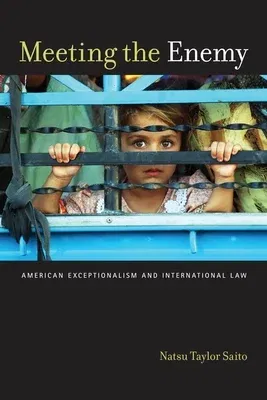Natsu Taylor Saito
(Author)Meeting the Enemy: American Exceptionalism and International LawHardcover, 22 March 2010

Qty
1
Turbo
Ships in 2 - 3 days
In Stock
Free Delivery
Cash on Delivery
15 Days
Free Returns
Secure Checkout

Part of Series
Critical America
Part of Series
Critical America (New York University Hardcover)
Print Length
384 pages
Language
English
Publisher
New York University Press
Date Published
22 Mar 2010
ISBN-10
0814798365
ISBN-13
9780814798362
Description
Product Details
Author:
Book Format:
Hardcover
Country of Origin:
US
Date Published:
22 March 2010
Dimensions:
23.29 x
16.13 x
2.92 cm
ISBN-10:
0814798365
ISBN-13:
9780814798362
Language:
English
Location:
New York
Pages:
384
Publisher:
Weight:
648.64 gm